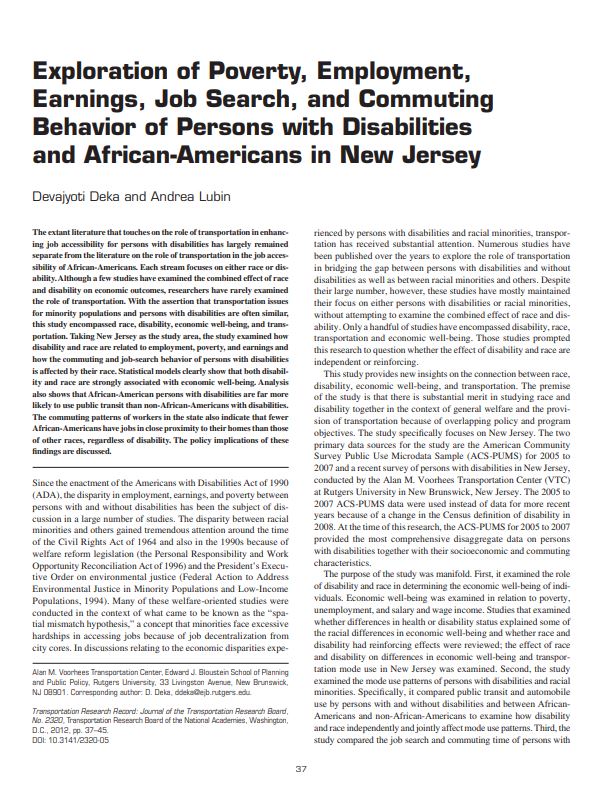Abstract
The extant literature that touches on the role of transportation in enhancing job accessibility for persons with disabilities has largely remained separate from the literature on the role of transportation in the job accessibility of African-Americans. Each stream focuses on either race or disability. Although a few studies have examined the combined effect of race and disability on economic outcomes, researchers have rarely examined the role of transportation. With the assertion that transportation issues for minority populations and persons with disabilities are often similar, this study encompassed race, disability, economic well-being, and transportation. Taking New Jersey as the study area, the study examined how disability and race are related to employment, poverty, and earnings and how the commuting and job-search behavior of persons with disabilities is affected by their race. Statistical models clearly show that both disability and race are strongly associated with economic well-being. Analysis also shows that African-American persons with disabilities are far more likely to use public transit than non-African-Americans with disabilities. The commuting patterns of workers in the state also indicate that fewer African-Americans have jobs in close proximity to their homes than those of other races, regardless of disability. The policy implications of these findings are discussed.
